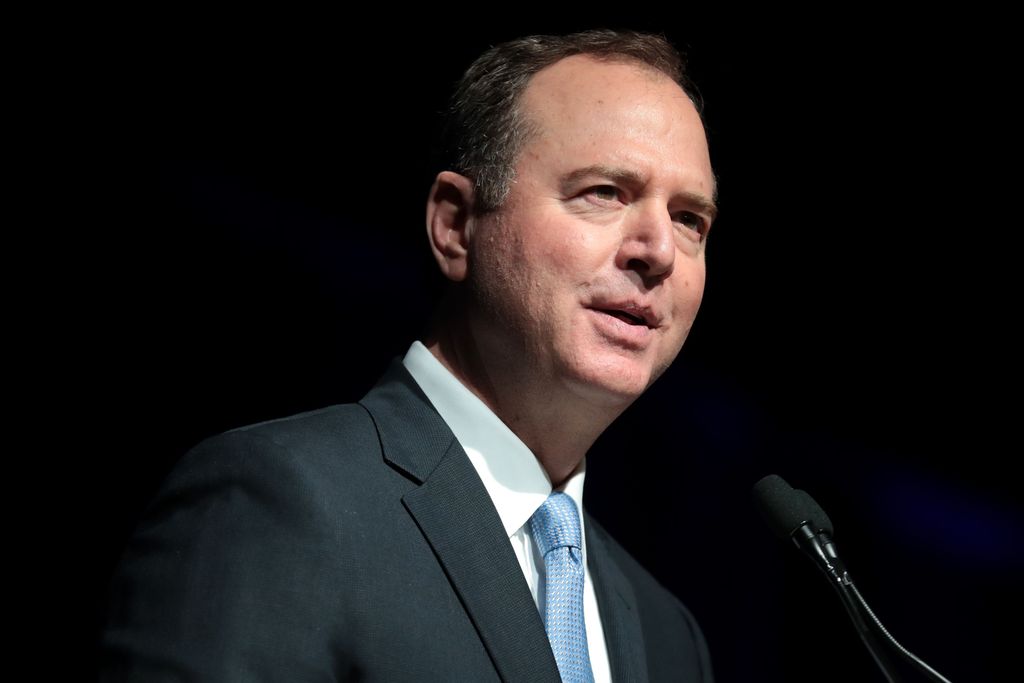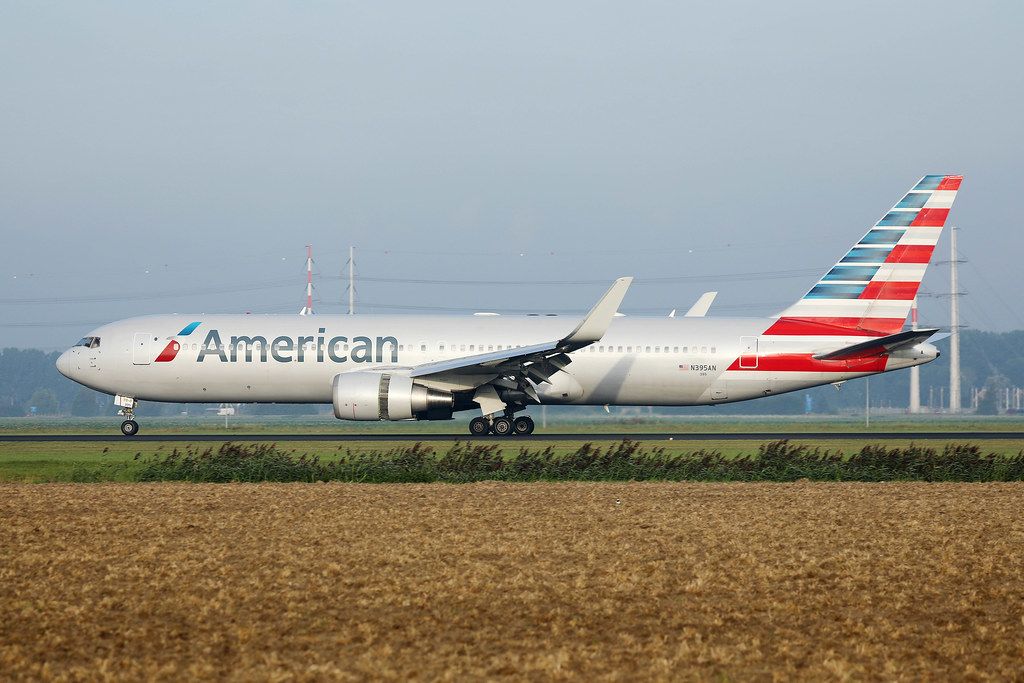
17-Year-Old’s Skiplagging Ban: American Airlines’ Three-Year Flight Prohibition
American Airlines recently took significant action against a 17-year-old passenger, barring him from flying with the airline for three years after he was discovered attempting to utilize a controversial booking strategy known as “skiplagging.” This incident shines a spotlight on the ongoing tension between airlines seeking to protect their revenue models and travelers employing creative methods to reduce the cost of airfare.
Skiplagging, sometimes referred to as hidden-city ticketing or point beyond ticketing, involves booking a flight that includes at least one stop, but with the intention of ending the journey at the layover city rather than continuing to the final destination listed on the ticket. This tactic is employed because, in some instances, a multi-leg flight to a city beyond the desired destination can be priced lower than a direct flight to that destination.
The teenager involved in the American Airlines incident was identified as Logan Parsons. His father, Hunter Parsons, stated that the 17-year-old was scheduled to fly from Gainesville, Florida, to New York City. The ticket included a layover in Charlotte, North Carolina, which was Logan’s actual intended destination. Booking the flight with New York as the final destination but planning to disembark in Charlotte was reportedly cheaper than purchasing a direct flight from Gainesville to Charlotte.
According to Hunter Parsons, his son’s attempt to use this method was thwarted at the ticket counter in Gainesville. A gate agent reportedly grew suspicious after noticing Logan’s North Carolina driver’s license, leading to questioning. The younger Parsons was subsequently taken to a security room for further interrogation regarding his travel plans.
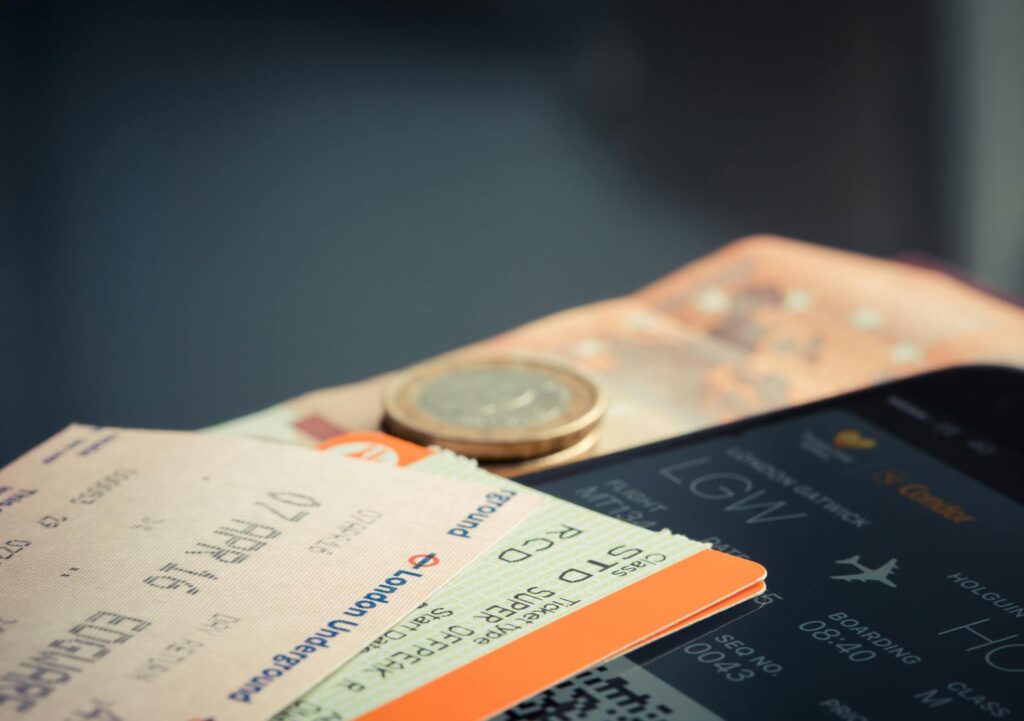
Following the questioning, American Airlines canceled Logan’s ticket. His father, Hunter Parsons, shared that his son was informed he was banned from the airline for a period of three years. The ban occurred even though the teen “never even got his boarding pass,” according to his father’s account, meaning he never actually commenced travel under the terms of the ticket he had purchased.
Hunter Parsons expressed considerable concern about the situation, particularly regarding the treatment of his minor son. He told an outlet that his son was “left to fend for himself 500 miles from home.” This assertion highlights the father’s distress over the airline’s handling of the situation involving a young, solo traveler.
The father maintained that his son “never violated any policy or broke any contract” by simply presenting himself at the counter to obtain his boarding pass. This perspective contrasts sharply with the airline’s view, which considers the *intention* to not complete the full itinerary as a violation of their terms and conditions.

The Truth About Skiplagging: Hidden-City Ticketing’s Cost-Saving Trap and Risks
Hunter Parsons indicated that the family had used booking platforms listing hidden-city ticketing options, such as Skiplagged, for a considerable period, specifying a timeframe of “almost exclusively for the last five to eight years.” However, he noted that this particular instance would have been the first time a family member actually skipped the final leg of a flight, implying their prior use involved completing the full booked itinerary despite the potential for a hidden-city option.
He also conveyed that his son “didn’t know he was doing anything wrong” when attempting to use the $150 layover ticket instead of paying a higher fare for a direct flight to Charlotte. Hunter Parsons stated that after the cancellation, the family was compelled to purchase a new, direct ticket to Charlotte for more than $400, a significantly higher cost than the original ticket.
American Airlines, for its part, defended its actions by referring to its established policies. When asked for comment on the situation, the airline directed inquiries to its terms and conditions of carriage. These policies explicitly prohibit “purchasing a ticket without intending to fly all flights to gain lower fares,” which is precisely the definition of hidden city ticketing or skiplagging.
In a statement, a spokesperson for American Airlines confirmed details of the interaction, stating, “Our records indicate the customer was questioned only at the ticket counter about their travel while attempting to check-in for their flight.” The airline also noted that a member of their Customer Relations team had been in contact with the family to address their concerns, acknowledging communication regarding the incident.
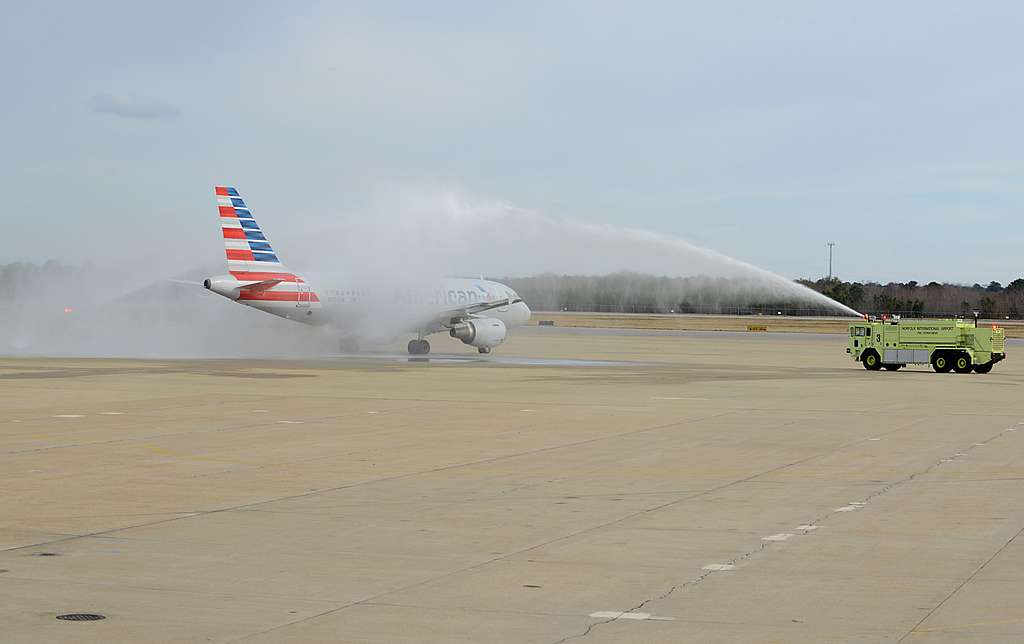
Airlines vs. Booking Platforms: American Airlines’ Lawsuit Against Skiplagged
The airline views skiplagging not merely as an inconvenience but as a deceptive practice that undermines their fare structures and operational management. They argue that when a passenger fails to show up for the second leg of a journey, it results in an empty seat that could have potentially been sold to another paying customer, leading to lost revenue.
Furthermore, American Airlines has taken more direct action against entities that facilitate skiplagging. The airline recently filed a lawsuit against Skiplagged Inc., the travel website Logan’s father mentioned using. The lawsuit was filed in federal court in Fort Worth, Texas, accusing the website of deception and abuse.
American Airlines alleges that Skiplagged tricks consumers into believing they can exploit “some kind of secret ‘loophole’” in airline pricing. The airline claims that Skiplagged poses as an ordinary consumer to purchase tickets and even warns its customers not to reveal their skiplagging plans to airline staff.
In the lawsuit, American Airlines asserted that Skiplagged, which is based in New York, has never been authorized to resell American’s tickets. They contend that Skiplagged’s conduct is “deceptive and abusive,” misleading the public into thinking the website can issue valid tickets on American’s behalf without authorization.

“Every ‘ticket’ issued by Skiplagged is at risk of being invalidated,” American Airlines stated in the lawsuit. This aggressive stance indicates the airline’s determination to combat the practice at its source, warning consumers about the potential consequences of using such websites.
This is not the first time Skiplagged has faced legal challenges from airlines. In 2014, United Airlines and the online travel agency Orbitz jointly sued Aktarer Zaman, the founder of Skiplagged, who was in his early twenties when he started the site around that time. The lawsuit accused Zaman of promoting “prohibited forms of travel.”
Zaman initiated a GoFundMe campaign to cover his legal expenses following the lawsuits. Ultimately, he reached a settlement with Orbitz, and the case brought by United Airlines was dismissed, illustrating the complex legal landscape surrounding these booking methods.
Other airlines have also pursued action against either Skiplagged or passengers engaging in the practice. Lufthansa, the German airline, reportedly sued a passenger in 2018 who had attempted to skiplag on a flight from Oslo to Seattle, intending to disembark at the layover in Frankfurt, Germany. While Lufthansa later dropped that specific suit, it signaled airlines’ willingness to take individual passengers to court.

In 2021, Southwest Airlines sued Skiplagged in Texas. Southwest alleged that the website was displaying and selling the airline’s cheap fares without proper authorization. Southwest had also previously sued Kiwi.com, another similar travel site, for the same reasons, highlighting a pattern of airlines challenging third-party sites that they believe are misusing their fare data or facilitating policy violations.
The incident involving Logan Parsons underscores the fact that airlines are increasingly cracking down on skiplagging, not just by suing websites but by taking direct action against passengers caught engaging in the practice. The airline’s decision to ban a minor for three years has been called “harsh” by at least one airline attorney who spoke with local media.
Bruce Brandon, an attorney, commented on the severity of the action, particularly given Logan’s age and lack of solo travel experience. “It’s the first time he’s flown, and he really doesn’t know what he is doing,” Brandon said. “It seems to be a bit harsh to me… I just don’t understand why they would do this,” he added, questioning the rationale behind such a severe ban for a first-time offense by a young person.
The conflicting perspectives – the airline viewing skiplagging as a contract violation and deceptive practice causing financial harm, versus passengers seeing it as a legitimate way to find lower fares and the father’s view of his son being unfairly treated – illustrate the complexities of modern air travel pricing and consumer behavior. While the practice itself may not be illegal, violating an airline’s conditions of carriage can clearly lead to significant consequences for the traveler, as demonstrated by Logan Parsons’ three-year ban.
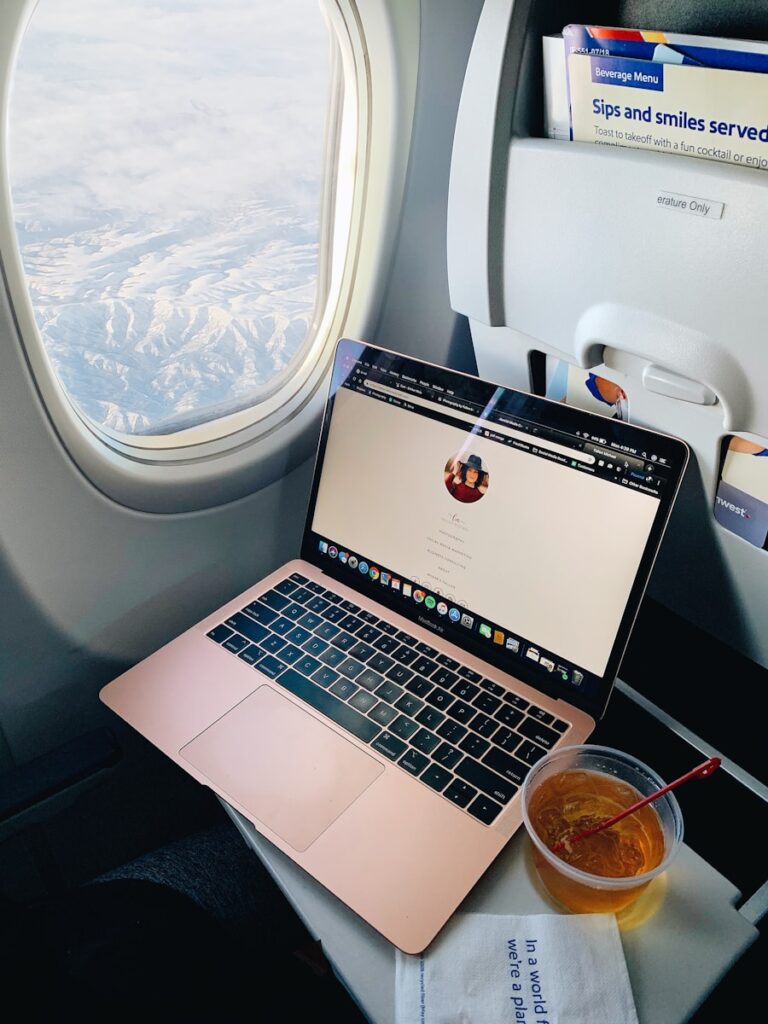
Teen Flight Ban Controversy: The Game Between Policy Harshness and Consumer Rights
The case serves as a clear warning to passengers who might consider using hidden-city ticketing to save money. Airlines are vigilant and equipped with methods to detect such practices, including scrutinizing itineraries and passenger information at check-in. The potential savings must be weighed against the significant risks, including ticket cancellation, denied boarding, retroactive fare charges, and even multi-year bans from the airline, consequences that can severely impact future travel plans.
The actions taken by American Airlines against both the teenager and the Skiplagged website signal a reinforced commitment by major carriers to enforce their policies and protect their revenue streams from practices they deem abusive. As airfare remains a significant cost for many travelers, the pursuit of cheaper fares through alternative booking methods will likely continue, ensuring that the debate and conflicts surrounding practices like skiplagging remain a relevant and evolving aspect of the travel industry landscape for some time to come.
The father’s description of his son’s experience – being questioned, having his ticket canceled, facing a ban, and being left without immediate assistance far from home – paints a vivid picture of the personal impact of these corporate policies and enforcement actions. It raises questions about proportionality and the discretion airlines exercise when dealing with policy violations, particularly involving younger travelers who may not fully understand the intricacies of airline contracts.
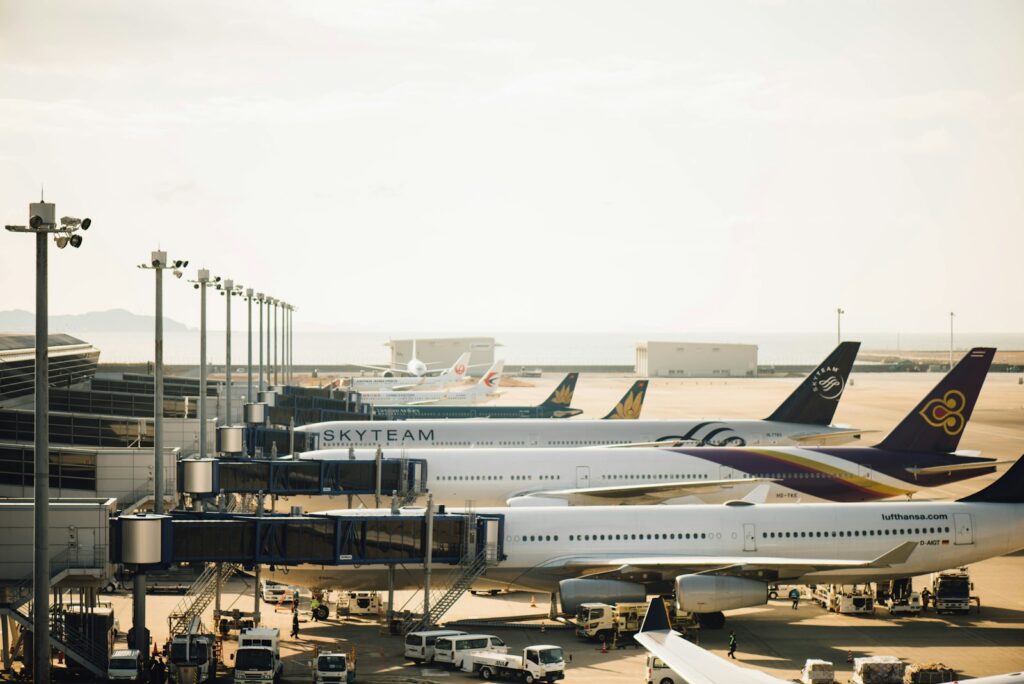
Ultimately, this incident is more than just a story about a teenager’s travel woes; it is a microcosm of the ongoing struggle between established industry pricing models and disruptive consumer-driven tactics facilitated by technology. The outcome for Logan Parsons serves as a stark reminder of the potential repercussions for travelers who venture outside the airlines’ preferred methods of booking, highlighting the fine print hidden within the pursuit of a cheaper seat.
The vigilance shown by the American Airlines gate agent in Gainesville, spotting the inconsistency between the passenger’s ID and his stated final destination, demonstrates the frontline efforts by airlines to detect skiplagging in real-time. This was not a case that went unnoticed until after the flight; the intervention occurred before the teen even boarded, based on suspicion arising from routine checks.
The airline’s statement that the questioning occurred “only at the ticket counter” might be intended to suggest the interaction was brief or limited, yet the father’s account describes the teen being taken to a security room and interrogated, suggesting a more significant and potentially intimidating experience for a 17-year-old traveling alone.
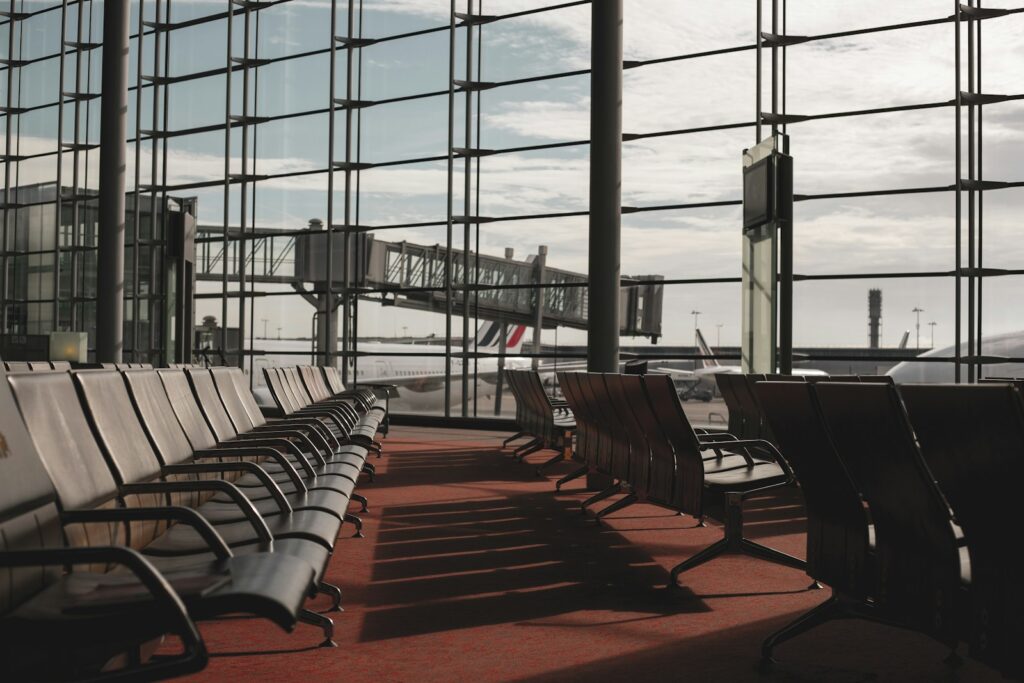
It’s clear that airlines view skiplagging as a form of contractual breach, where the passenger enters into an agreement to fly a specific itinerary but intends to break that agreement. Their terms and conditions, often lengthy documents that few passengers read in full, form the legal basis for actions like canceling tickets or issuing bans.
The financial motivation for passengers is undeniable. As the father noted, the price difference between the skiplagging ticket and the direct flight was substantial ($150 vs. over $400). This cost disparity is the driving force behind the popularity of hidden-city ticketing and the services that highlight these options.
The various past lawsuits involving Skiplagged and other airlines demonstrate that the conflict is a systemic issue within the industry. Airlines are collectively working to shut down practices and platforms that they believe are unfairly capitalizing on their pricing systems and costing them revenue that they feel entitled to based on their contracts of carriage.
The case of Logan Parsons, a young traveler caught in the crossfire of this ongoing battle, serves as a cautionary tale. While the desire to save money on travel is understandable, the risks associated with violating airline policies, particularly for methods as targeted for enforcement as skiplagging, are substantial and can have long-lasting consequences for one’s ability to fly with major carriers in the future.
Related posts:
American Airlines sues Skiplagged travel site after company bars teen for using for cheap ticket
American Airlines bans North Carolina teen who tried popular travel hack
Schoolboy, 17, who was detained for skiplagging is now BANNED from flying on American Airlines for three years



